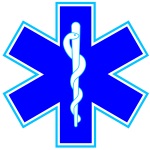Sedative Hypnotics
From Protocopedia
Section 8 - MEDICATION GUIDELINES
8.15 SEDATIVE / HYPNOTICS / ANTIPSYCHOTIC
Diazepam (VALIUM) / Sedative Hypnotic
DESCRIPTION
- It is a skeletal muscle relaxant that reduces tremors, induces amnesia, and reduces the incidence and recurrence of seizures.
INDICATIONS
- Seizures, Status Epilepticus, premedication prior to cardioversion, acute anxiety states, acute alcohol withdrawal.
CONTRAINDICATIONS
- Hypersensitivity to the medication.
PRECAUTIONS
- Due to a short half-life of the drug, seizure activity may recur.
DOSAGE
- 2 - 20 mg Slow IVP for adults titrated to effect. If no IV access, administer 10 - 20 mg IM up to a total of 2 ml per large muscle injection site or 1 ml per small muscle injection site. Refer to PRACTICE PARAMETER for specific dosages.
- Refer to Handtevy System for pediatric dosage.
Midazolam (VERSED) / Sedative / Hypnotic
DESCRIPTION
- It is a skeletal muscle relaxant that reduces tremors, induces amnesia, and reduces the incidence and recurrence of seizures.
- Depresses sub-cortical levels in CNS.
INDICATIONS
- Sedation for post resuscitation combativeness, combative head injury, intubations, pacing and cardioversion.
- Seizures, status epilepticus.
CONTRAINDICATIONS
- Pregnancy (relative contraindication), hypersensitivity to benzodiazepines, coma, acute narrow angle glaucoma, shock, alcohol intoxication.
PRECAUTIONS
- Hypotension, COPD, CHF, chronic renal failure, chills, elderly, debilitated.
DOSAGE
- INTUBATION: Initial dose, 2-5 mg IVP then 2-4 mg every 30 seconds to 1 minute.
- SEDATION, PACING, CARDIOVERSION: Initial dose 2-5 mg IVP then 2 mg every 30 second to 1 minute IVP. Max dose= 15 mg in the intubated patient. Can be given IM.07-.mg/kg with onset in approximately 15 minutes
- An IM injection requires immediate IV access upon sedation.
- HYPOTENSION responds well to Trendelenburg.
- Pediatrics refer to Handtevy System.
Ziprasidone (GEODON) / Antipsychotic
DESCRIPTION
- An atypical antipsychotic acting as a dopamine antagonist that also affects other neurotransmitters to reduce psychosis and acute agitation.
INDICATIONS
- Used for the control of acute agitation in schizophrenic and/or severely agitated patients.
CONTRAINDICATIONS
- Persons known to have prolonged QTc intervals
- Only in high doses of 40-60 mg has shown a slight increase in QTc
- Known recent acute myocardial infarction
- Uncompensated heart failure
- Patients known to take other medications that also prolong the QTc interval
- Hypersensitivity to the medication.
PRECAUTIONS
- No clinically significant drug-drug interactions have been identified with other concomitantly administered EMS medications such as benzodiazepines.
DOSAGE
- 10 - 20 IM for adults based on the BARS scale for agitation.
- Not approved for use in pediatric patients.
ONSET OF ACTION
- Less than 15 minutes
- Peak effect 20-30 minutes
- Half-Life 2-5 hours
Behavioral Activity Rating Scale
| 7 | Violent, requires restraint. |
| 6 | Extremely/continually active; not requiring restraint. |
| 5 | Signs of overt (physical or verbal) activity; calms down with instruction. |
| 4 | Quiet and awake (normal activity level). |
| 3 | Drowsy, appears sedated. |
| 2 | Asleep, but responds normally to verbal or physical contact. |
| 1 | Difficult or unable to arouse. |
Medications known to prolong the QTc (This table is not all inclusive)
| Adderall | Droperidol | Procainamide |
| Amiodarone | Effexor | Propulsid |
| Anzemet | Elavil | Prozac |
| Avelox | Erythromycin | Seroquel |
| Betapace | Haldol | Tamoxifen |
| Cardene | Lozol | Zanaflex |
| Cerebyx | Mellaril | Zithromax |
| Detrol LA | Norpace | Zoloft |
